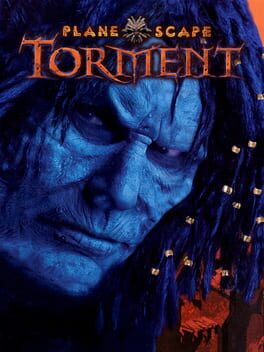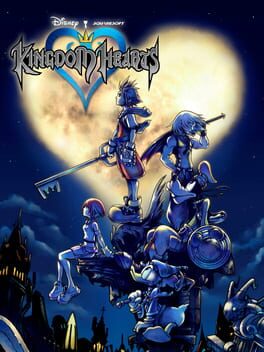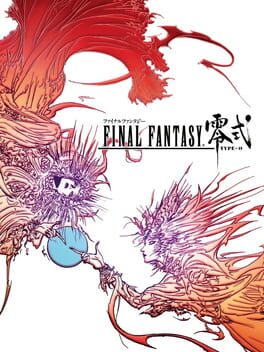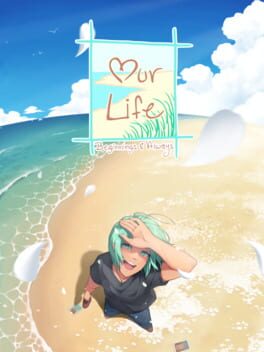Woodaba
the "woodaba" experiment has now concluded. thank you for your participation.
president of the The Bouncer (2000) fanclub
(they/them)
i make videos here!
Badges

Pinged
Mentioned by another user

GOTY '22
Participated in the 2022 Game of the Year Event

N00b
Played 100+ games

Gone Gold
Received 5+ likes on a review while featured on the front page

Best Friends
Become mutual friends with at least 3 others

Listed
Created 10+ public lists

Donor
Liked 50+ reviews / lists

3 Years of Service
Being part of the Backloggd community for 3 years

GOTY '21
Participated in the 2021 Game of the Year Event

Famous
Gained 100+ followers

Treasured
Gained 750+ total review likes

Trend Setter
Gained 50+ followers

Adored
Gained 300+ total review likes

Loved
Gained 100+ total review likes

Popular
Gained 15+ followers

Well Written
Gained 10+ likes on a single review

Liked
Gained 10+ total review likes

Noticed
Gained 3+ followers
Favorite Games
117
Total Games Played
000
Played in 2024
007
Games Backloggd
Recently Played See More
Recently Reviewed See More
Oxymoronic a statement as it might appear, this is core to the game's failings to me. People who make games generally want to make good games, of course, but paired with that there is an intent, an interest, an idea that seeks to be communicated, that the eloquence with which it professes its aesthetic, thematic, or mechanical goals will produce the quality it seeks. Final Fantasy XVI may have such goals, but they are supplicant to its desire to be liked, and so, rather than plant a flag of its own, it stitches together one from fabric pillaged from the most immediate eikons of popularity and quality - A Song of Ice and Fire, God of War, Demon Slayer, Devil May Cry - desperately begging to be liked by cloaking itself in what many people already do, needing to be loved in the way those things are, without any of the work or vision of its influences, and without any charisma of its own. Much like the patch and DLC content for Final Fantasy XV, it's a reactionary and cloying work that contorts itself into a shape it thinks people will love, rather than finding a unique self to be.
From the aggressively self-serious tone that embraces wholeheartedly the aesthetics of Prestige Fantasy Television with all its fucks and shits and incest and Grim Darkness to let you know that This Isn't Your Daddy's Final Fantasy, without actually being anywhere near as genuinely Dark, sad, or depressing as something like XV, from combat that borrows the surface-level signifiers of Devil May Cry combat - stingers, devil bringers, enemy step - but without any actual opposition or reaction of that series' diverse and reactive enemy set and thoughtful level design, or the way there's a episode of television-worth of lectures from a character explaining troop movements and map markers that genuinely do not matter in any way in order to make you feel like you're experiencing a well thought-out and materially concerned political Serious Fantasy, Final Fantasy XVI is pure wafer-thin illusion; all the surface from it's myriad influences but none of the depth or nuance, a greatest hits album from a band with no voice to call their own, an algorithmically generated playlist of hits that tunelessly resound with nothing. It looks like Devil May Cry, but it isn't - Devil May Cry would ask more of you than dodging one attack at a time while you perform a particularly flashy MMO rotation. It looks like A Song of Ice and Fire, but it isn't - without Martin's careful historical eye and materialist concerns, the illusion that this comes even within striking distance of that flawed work shatters when you think about the setting for more than a moment.
In fairness, Final Fantasy XVI does bring more than just the surface level into its world: it also brings with it the nastiest and ugliest parts of those works into this one, replicated wholeheartedly as Aesthetic, bereft of whatever semblance of texture and critique may have once been there. Benedikta Harman might be the most disgustingly treated woman in a recent work of fiction, the seemingly uniform AAA Game misogyny of evil mothers and heroic, redeemable fathers is alive and well, 16's version of this now agonizingly tired cliche going farther even than games I've railed against for it in the past, which all culminates in a moment where three men tell the female lead to stay home while they go and fight (despite one of those men being a proven liability to himself and others when doing the same thing he is about to go and do again, while she is not), she immediately acquiesces, and dutifully remains in the proverbial kitchen. Something that thinks so little of women is self-evidently incapable of meaningfully tackling any real-world issue, something Final Fantasy XVI goes on to decisively prove, with its story of systemic evils defeated not with systemic criticism, but with Great, Powerful Men, a particularly tiresome kind of rugged bootstrap individualism that seeks to reduce real-world evils to shonen enemies for the Special Man with Special Powers to defeat on his lonesome. It's an attempt to discuss oppression and racism that would embarrass even the other shonen media it is clearly closer in spirit to than the dark fantasy political epic it wears the skin of. In a world where the power fantasy of the shonen superhero is sacrosanct over all other concerns, it leads to a conclusion as absurd and fundamentally unimaginative as shonen jump's weakest scripts: the only thing that can stop a Bad Guy with an Eikon is a Good Guy with an Eikon.
In borrowing the aesthetics of the dark fantasy - and Matsuno games - it seeks to emulate, but without the nuance, FF16 becomes a game where the perspective of the enslaved is almost completely absent (Clive's period as a slave might as well not have occurred for all it impacts his character), and the power of nobility is Good when it is wielded by Good Hands like Lord Rosfield, a slave owner who, despite owning the clearly abused character who serves as our introduction to the bearers, is eulogized completely uncritically by the script, until a final side quest has a character claim that he was planning to free the slaves all along...alongside a letter where Lord Rosfield discusses his desire to "put down the savages". I've never seen attempted slave owner apologia that didn't reveal its virulent underlying racism, and this is no exception. In fact, any time the game attempts to put on a facade of being about something other than The Shonen Hero battling other Kamen Riders for dominance, it crumbles nigh-immediately; when Final Fantasy 16 makes its overtures towards the Power of Friendship, it rings utterly false and hollow: Clive's friends are not his power. His power is his power.
The only part of the game that truly spoke to me was the widely-derided side-quests, which offer a peek into a more compelling story: the story of a man doing the work to build and maintain a community, contributing to both the material and emotional needs of a commune that attempts to exist outside the violence of society. As tedious as these sidequests are - and as agonizing as their pacing so often is - it's the only part of this game where it felt like I was engaging with an idea. But ultimately, even this is annihilated by the game's bootstrap nonsense - that being that the hideaway is funded and maintained by the wealthy and influential across the world, the direct beneficiaries and embodiments of the status quo funding what their involvement reveals to be an utterly illusionary attempt to escape it, rendering what could be an effective exploration of what building a new idea of a community practically looks like into something that could be good neighbors with Galt's Gulch.
In a series that is routinely deeply rewarding for me to consider, FF16 stands as perhaps its most shallow, underwritten, and vacuous entry in decades. All games are ultimately illusions, of course: we're all just moving data around spreadsheets, at the end of the day. But - as is the modern AAA mode de jour - 16 is the result of the careful subtraction of texture from the experience of a game, the removal of any potential frictions and frustrations, but further even than that, it is the removal of personality, of difference, it is the attempt to make make the smoothest, most likable affect possible to the widest number of people possible. And, just like with its AAA brethren, it has almost nothing to offer me. It is the affect of Devil May Cry without its texture, the affect of Game of Thrones without even its nuance, and the affect of Final Fantasy without its soul.
Final Fantasy XVI is ultimately a success. It sought out to be Good, in the way a PS5 game like this is Good, and succeeded. And in so doing, it closed off any possibility that it would ever reach me.
It doesn’t really surprise me that each positive sentiment I have seen on Final Fantasy XVI is followed by an exclamation of derision over the series’ recent past. Whether the point of betrayal and failure was in XV, or with XIII, or even as far back as VIII, the rhetorical move is well and truly that Final Fantasy has been Bad, and with XVI, it is good again. Unfortunately, as someone who thought Final Fantasy has Been Good, consistently, throughout essentially the entire span of it's existence, I find myself on the other side of this one.
Final Fantasy XV convinced me that I could still love video games when I thought, for a moment, that I might not. That it was still possible to make games on this scale that were idiosyncratic, personal, and deeply human, even in the awful place the video game industry is in.
Final Fantasy XVI convinced me that it isn't.
This review contains spoilers
Type-0 begins, after a characteristically bombastic intro CG cutscene displaying all the visual panache and particle effects one would expect from a Squeenix production, in a decidedly much less characteristic manner, in which we see, over the course of a long cutscene, a character slowly bleed out and die waiting for the "heroes", Class Zero, who will not arrive in time to save him, watching as he goes through periods of calm, resignation, acceptance, and then, most cuttingly and affecting at all, last minute panic as he spends his final moments screaming about how he doesn't want to die, before he finally, inevitably, does.
In the world of Type-0, the dead are erased from the minds of the living, an act framed as a kindness on behalf of the benevolent crystals, but in reality is only a measure to ensure the grand experiment of Orience continues in the most efficient manner possible. So, when members of Class Zero find Izana Kunagiri's body, they don't see him. They see a shape, an empty vacuous hole in the shape of a human being, everything he was and could have been having been violently stripped from him as he passed, with only Ace (who for reasons the game is largely uninterested in explaining, is one of only a few people in the world who can remember the dead) actually being able to see this for what this is: a young man, with thoughts and feelings and dreams, a loved one, taken from the world before any of those things could be fulfilled. Ace looks on at Izana, tears welling up as he strains to maintain his composure, before his companions demand he continue the mission, the social violence of this system the crystals perpetuate consuming even those who are able to sidestep its immediate effects. Not even given the space to process what this loss means for him - because his allies are literally incapable of understanding it - Ace turns away, and back into the battle...to die, and die again.
This is what it means to exist in Orience, the world of Final Fantasy Type-0. It's not simply that it is a hostile world to exist in (though, it definitely is that, as the preponderance of level 99 behemoths that can wipe your entire party effortlessly wandering even the low-level areas makes navigating it's world a constantly tense affair), but that the modes and rhythms of play constantly emphasize the ever-present threat of death, not just death, but callous, uncaring death that comes quickly, nastily, and brutishly.
When you first start Type-0, 14 party members right from the start feels like a lot. But you're going to need them, because on any given mission, most if not almost all of them will die, either at the hands of the astonishingly quick TTK given how high the Numbers are for your health, or for being summarily executed by your own side in the middle of a battle for failing to execute an optional order, or from the insta-kill Killsight mechanic that exists for both the enemy and you, or simply because you yourself sacrifice them to bring out the game's magical WMDs de jour, the Eidolons. The constancy of death in play, combined with the fact that revival items are absurdly rare and expensive, means you can't just keep throwing Phoenix Downs at your fave to keep them up and in the action. You can easily exhaust the entire game's quantity of Phoenix Downs on a single mission by doing that. So, instead, you have to roll with the punches, and soon, you learn to take part in the grim moral calculus of which party members are expendable, which ones you want to throw into the fire of almost certain death, and which ones you value enough to protect and keep for later.
It's a sickening realization to come to, to realize that Type-0 demands you play it in such a way that you hold the lives of these children in your hands and decide which life holds value to you.
It's also revelatory of who the player character of Type-0 actually is. It's not Ace, who is prominently fronted in the opening cutscene and is the go-to rep for Type-0 in crossover media, because despite that (and being my favorite character) he's not that important. It's not Machina or Rem, who are both taken out of the action in the final chapter and are best described as the Witnesses of the story rather than it's protagonists.
No, the person you are playing as is actually Arecia al-Rashia, the abusive mother of Class Zero who kidnapped, brainwashed, and made these children into weapons as part of a nebulous goal she has thus far failed to achieve 600,142,971 times, and will likely fail to achieve 600,142,971 times more.
Experiencing the playing of an RPG - the levelling, the equipping, the customization - through this frame is a confronting experience that is difficult to sit with. When you're playing Dragon Quest III, for example, there is a level of assumed abstraction, that when you de-equip a sword from one character to give to another, that there is not a godlike entity watching over the cast that makes these decisions for them, we take as given that our mechanical movements here represent an interaction between these characters. Type-0 removes this comforting abstraction, and ties the acts of JRPG mechanical play with parental abuse in a way that, once you realize what is happening here, tints even the most mundane of mechanical interactions in the game in upsetting hues.
I want to stress, because I think there's a bad, almost solipsistic tendency on behalf of players to associate criticism and condemnation of a player character with criticism and condemnation of the player themself, that I do not think Type-0 thinks that RPG mechanics are abusive. Rather, I think this lens of abuse exists because of what Type-0 is actually interested in, which is the deeply cruel and dehumanizing effect of the way we raise young people in schools.
It's easy to assume that the school setting of Type-0 is barely meant to be thought about, used as shorthand for a relatable shared social space in the way that many anime and anime-adjacent media do, and I think that is exactly what we are supposed to think at the beginning, before the unique cruelties of this school environment begin to properly reveal themselves.
What the Akademia of Rubrum exists to teach these kids is not the things that will actually meaningfully enrich their lives. It is not the things that will help them become happier, brighter people. They are taught how to be better killers, how to increase their stats and get better equipment to more efficiently kill others, all for the sake of the adults in charge of the school, blissfully comfortable far behind the frontlines, churning through these children in order to achieve a nebulous, undefined goal that, owing to said undefinability, can never and will never be achieved. In play, this creates a dynamic where unlike, say, Persona, socializing with others represents time that would be better spent, in the eyes of the faculty, on training missions, classes to raise stats, and other strict mechanical bonuses that will allow you to succeed in upcoming "exams" in the form of mandatory story missions.
School in Type-0 is not, as in Persona, a kind of fantastical place to live out an idyllic, largely frictionless school life. It is the infliction of a cold, brutal calculus of choosing between academic/mechanical success and developing relationships and more positive memories, a kind of calculus that you don't really have much choice but to acquiesce to, because it's not like you can challenge the school system as a school student, can you?
I'd like to use the character of Ace as my case study for this. As mentioned above, Ace is my favorite character in this game. We're introduced to him, after the dramatic entrance of Class Zero, crying over the passing of Izana Kunagiri, the boy who slowly dies in the game's opening suquence. This established that unlike his comrades, Ace can remember Izana, but it's only in flashbacks as the game goes on (flashbacks that take up valuable time the faculty would rather you use on training) that their relationship is revealed, and it only enhances the tragedy of the opening moments by making clear that the tears Ace shed over Izana's passing were the only time he was able to be fully emotionally honest with him in a way he could understand, because Ace, as a sheltered child soldier raised from birth within this system doesn't have the framework to ask Izana to hang out sometime or play Tekken with him after school or whatever. His opening up to Izana comes in the form of asking him to go on a mission with him, the same mission that will lead to his death. It's tragic, and thorny, and difficult to turn over in my head without it cutting against me. Ace in general empathizes greatly with a lot of the interactions and distances my autism created for me in school, but I don't want to center this reading on myself when I think the game is so good at reflecting the meaningful lived experience of far more people than just myself.
(Though, I do gotta say: the scene where Ace sings the opening bars of the game's theme song to try to communicate his feelings to the rest of the class because he doesn't feel like he can manage it with his own words? Broooooooooooooooooo 😭😭😭😭😭😭)
Far be it from me to speculate on the tastes of an entire nation, but if there is a reason I can point to for why Type-0 was a surprise hit in Japan when it was originally released on PSP, despite the deeply frictional and hostile nature of many of it's design decisions, I think this might be why. I do not want to suggest that anime as a medium is entirely uninterested in interrogating the violence of education because that is clearly untrue, but I do think there is a ubiquity to the school setting in anime that belies what a troubling and traumatic experience it can be for many people, myself very much included. Type-0 is far truer to experience of School as I experienced it than most any other game depicting that environment I have ever played, first and foremost by acknowledging the uniquely upsetting experience of spending years inside a system where you are taught in such a manner as to mold you into a nebulous concept rather than to meaningfully broaden your horizons.
Indeed, if you just go through the main story of Type-0 and don't take time out to talk to NPCs in the World Map or read the Rubicus lore book, you might completely miss out on certain details, and have certain late-game plot turns completely blindside you with their apparent abruptness. Even past this, certain key characters are introduced after the final cutscene and first ending, and require a second playthrough - with new scenes and plot elements - to fully grasp the significance of. This is the element of the game I most struggled with on my past abortive attempts to get into Type-0, but when I finally did break past the loop and find myself in Type-0, it was one of the elements I appreciate the most. Much like this team's next work, Final Fantasy XV, Type-0 is very intentional with the elements it presents to you and the elements it leaves out, and the elements it wants you to seek out for yourself. The game's major cutscenes are presented like wartime propaganda, and that's because they are: selectively informative newsreels that tell you what the Dominion of Rubrum wants you to know. Very rarely does a game withhold so much information so intentionally, to let you miss out on so many things if you are unwilling to seek out that information for yourself, and broaden your knowledge beyond what the Powers That Be want you to know.
The more you learn, the bleaker and more desperate the world of Orience seems, with a similar effect reading the news and histories of our own world can have. If you are familiar with the Fabula Nova Crystallis lore that Type-0 draws from you might realize what exactly is going on reasonably quickly, but even without that, the game does an excellent job of giving you information that rarely gives simple answers to simple questions. Instead, everything it tells you makes everything thornier, more complicated, less the simple "we are being invaded by fascists" premise the story fronts as. It's a kind of complexity that reaches fever pitch in time for the game's final act where Rubrum, your nation, manages to hold back a two-pronged attack by enacting - out of desperation, for whatever that is worth - what can only be described as a wartime atrocity, annihilating the Evil Army you've spent the entire game fighting against and setting the stage for a penultimate chapter wherein you are obviously - if you have been paying attention - becoming the villains, moving beyond simply reclaiming your own territory and outright conquering the entire world with your overwhelming military strength. I've not really touched on the game's RTS elements but I do want to note them here because this is another example where Type-0 takes it's mechanics to their uncomfortable conclusions: what does Painting A Map Your Colour practically mean in a world full of real, living people?
There's interesting stuff in this lore - particularly with regards to the world's relationship with Agito and Finis, and the motivations of Grand Marshal Cid Aulstyne, who initially appears to be a laughably unsympathetic fascist analogue but who eventually reveals himself to be a troubled idealist who is taking whatever methods necessary to free the people of Orience from the hell they are blissfully unaware of being trapped in (yes, I am aware that once again I have found a Problematic Char Aznable to Stan) - but the importance of it is in how it is placed, this act of you going to seek out this information on your own, to push against the boundaries of the system you are trapped in even if breaking through entirely might be impossible. When Tempus Finis comes - the final exam both for you and all humanity - you can learn all you want about why it's occurring and what it's purpose is, but no matter what, the game will still end with a final dungeon that consists almost entirely of arbitrary challenges you must follow to the letter or face death. No one in the world of Orience can escape examination, and because of the nature of that world, none can ever truly meet the standards of their deific examiners.
VERDICT: FINIS.
I love how this game ends. It's the strangest final dungeon I've ever experienced in an RPG, one that lays bear the question-answer-response loop of almost every video game remotely like this bare in a strangely upsetting and beautifully alienating way. It's oft been described that bosses and final levels should act as examinations for everything the player has been taught so far, and Type-0 literalizes that in such a charismatic way. And the glimmer of hope at the end, where you persist even after the Arbiter fails you, where you fight and die and fight and die again to finally defeat him and end the apocalypse is so beautiful...and only made more so when it is eventually snatched from you again. The true end of the game is not when you defeat the final boss, but when the party, in a position to be ressurected once again by Arecia, begs to be allowed to finally die and for the world to escape from it's cycle, to which Arecia, seemingly, acquiesces. As a beat, this didn't sit right with me, but, in the one true act of brilliance the HD port offers, I was surprised to find the game agreeing with that read, choosing instead to truly close out Type-0 on one final secret ending that reveals that, eventually, Arecia ignored the pleas of her children, changes her mind, and resets everything for one more turn of the wheel.
The world won't change by begging for it to. Because, fundamentally, the Powers That Be don't actually care. And so, Class Zero and the rest of Orience remain trapped. Forever.
Class Zero has died a thousand thousand times. They're going to die, and die, and die again. They're going to keep dying, forever. And no one will remember them.
"This makes it 600,142,972 times."
VERDICT: ZERO
In 2016, I was starting to fall out with video games a little. Increasingly, it felt like there weren't really any video games coming out that were For Me. Between a few high-profile disappointments in the form of Fire Emblem Fates, launch-era Civilization VI, and SMTIV: Apocalypse, and cases where games I did like, like Deus Ex: Mankind Divided and Dishonored 2, were commercial flops that killed their franchises, it felt like it just wasn't possible to make games anymore that hit me like the ones that made me fall in love with this medium in the first place. And then Final Fantasy XV came out, a game I approached with cautious optimism at best, but which absolutely blew me away, for being this deeply idiosyncratic game that did things I simply thought were impossible to do in the contemporary big-budget video game space, a game that removed it's own open world at the halfway point, when continuing to have it would be detrimental to the narrative, a game that was willing to be absolutely miserable to play for multiple chapters in order to underscore the collapsing relationships it was depicting, a game that enthralled me because it knew exactly what it wanted to do and what it wanted to be about, focusing it's entirety on that goal and leaving areas of traditional narrative or game design wisdom to languish where they weren't necessary.
I adored that game. It reignited my passion for video games, and set ablaze my fandom for Final Fantasy once again after the XIII series (at the time) left me feeling mixed, at best. But it was deeply divisive, outright loathed in many circles, and Square, for better or worse, released a series of updates and DLC content that sought to address those criticisms. Some of these additions were fine, others less so, but for someone who already loved the game exactly the way it was, it felt...strange and upsetting to watch a game I loved try to contort itself into new shapes to try to appeal to people who just weren't interested in it in the first place, and by the end of this process, with the absolutely execrable Episode Ardyn and Dawn of the Future novel that sought to effectively rewrite the story of Final Fantasy XV into a more traditional epic fantasy narrative that run roughshod over everything that made it exceptional in the first place, brought me back to the same place I was before XV, feeling that a game like this just wasn't possible to make in this environment.
Type-0 brought back those feelings, and served to solidify further that the team's decisions on XV were not the result of incompetence or a rushed development, but from genuine consideration for what would be the most effective way to tell this story. Hajime Tabata and his team at what would become Luminous Productions fucking had it, man, and it's a crying shame that Tabata left and Luminous was shifted onto a project steered into the dirt by Gary Fucking Whitta.
Type-0 is a difficult game to enjoy. It's not for nothing that it took me three or four attempts to get into it: it is frictional, off-putting, and alienating, and doesn't even have a beloved auteur's name attached like Suda51 or Yoko Taro that would give people a reason to push further in. But I've also never played a game quite like it. It's been about 3 months since I finished it and it's never quite left my head in that time. I don't think everyone is going to love this, which is why I've been a bit more laissez-faire with spoilers here (though i'm still not giving everything away) than normal, but I think if you want to love it, if this sounds like your thing...you owe it to yourself to play Type-0.
I am under no illusion that most people will not fall into that category. This game is even more alienating than launch-era FFXV, a game that to this day inspires some of the most venomous tracts I have ever heard towards any video game. And it's really not helped by the fact that the complete picture of the game is difficult to see, with the fan-translated PSP port's multiplayer features functionally inaccessible at this point, and the officially-translated HD port being, to be blunt, rubbish in many ways but also the most practically convenient way to play. Even Square has not seen fit to remember and honor Class Zero the way my heart cries out for them to be.
So, let this be my own personal epitaph for them. Not a recommendation, because I know most people won't like this game. Not an excoriation, because I still believe this game has immense worth. These are just words to mark it in one place, in one time.
History has left Final Fantasy Type-0 behind. But I remember it. And I am still here.
This review contains spoilers
But, of course, in order to mark it as GOTY, I have to mark it as played. And the easiest way to do that is to give it a star rating, which, of course, was 5 stars, on the urging of a voice in my head telling me that if I'm not going to give the game 5 stars, who will?
In a turn that feels immensely humbling, others have in fact rate it 5 stars. Which I am grateful and mortified about, but also thankful because it lifts from me the burden of having to mark this as 5 stars.
I don't know if other people feel the same about this, but I find it extremely difficult to look at something I've made holistically. I was there for every step of the sausage being made, after all, so maybe it's just natural that I all I see are a thousand tiny pieces, a jigsaw that has no clear overall shape. What this means is that when I look at Holy Ghost Story, I can see lines, scenes, moments and beats, but the whole picture is unclear to me. I think it's a real weakness of my writing, getting lost in the weeds and losing sight of the larger whole. Which is probably why this is twice as long as I planned it to be and has some scenes that an editor probably would have cut, but which I retained because I liked the way the light caught them, irrespective of their place in the wider thing.
Unlike some of the other entries in this mini genre, which comprises some of my favorite pieces on this site, I don't know if I have anything enormously interesting or cool to say about holy ghost story. As something that was originally planned to be a short and sweet project I could cobble together for Halloween, it ending up two months late and maybe twice as long as I intended does feel like something of a failure. Truthfully, I don't know how I feel about this and it's likely that I won't for a while, and if my track record with this sort of thing is any indication I'll probably come down pretty hard against it.
But right now, all I have are the pieces, and I can still pick them up and turn them over in my hands. I know I like reading about game development and the way these things come into life, so in lieu of any actual insightful thoughts or analyses, here are just some little tidbits from the time I spent making this game.
(spoilers, obvs)
- The whole thing was inspired by a riff I had with two of my friends about ghosts whose Unfinished Businesses were incredibly mundane. The ideas I had ballooned out during a visit to the Tate Modern the next day, and then contracted in again while I tried to siphon out the actual core of the story.
- The original title, inspired by one of the pieces in the Tate I saw, was "...almost religious awe..." but ultimately I could not resist the gag of evoking The Holy Ghost. Sorry, big man.
- I wanted to avoid any explicit queer/trans themes for this. A lot of my creative and critical work exists in this space, and I kind of wanted to avoid it for this. Not because I have anything against such works - far from it - but just because I wanted to go out of my comfort zone a little, into the moderately different comfort zone that is Catholic Guilt.
- Embarrassingly, the logo/cover art was partially inspired by the HD Remaster OPs for Mobile Suit Gundam SEED and Mobile Suit Gundam SEED Destiny, specifically the bits naming the various Gundams. I'm so sorry.
- This was originally going to be made in Visual Novel Maker, something which appealed to me because of my past work in RPGMaker. However, while RPGMaker as a toolset has it's ups and downs, I think VNM is something of a disaster, with an incredibly clunky interface that is catastrophically less intuitive than the python-based Ren'Py, which is where this ended up.
- Following on from above, the entire script was written in a word document before Ren'Py was opened even once. I future, I think I will play around much more with visuals and music as I am writing rather than writing everything and then making visuals and sounds around that, but I do think inputting the final script manually was good, because it allowed me to do some final last-minute editing and drafting that ended up with some of my favorite lines.
- Originally, the POV character, or "genius", was a much more passive person, who spoke in the present tense, and had almost no internal monologue or interiority. However, through successive drafts, more of a character started to creep in as I started to move the didactic qualities of the script into Genius as a character. I have mixed feelings about how Siobhan is presented but I do feel good about where Genius ended up, this kind of unpleasant, unempathetic, well-meaning but patronizing figure. Despite them being almost completely absent in the original outline, I think the story ended up being as much about them as it did about Siobhan, which I do like, even if it did take perhaps too many drafts to reach that point.
- Accordingly, the scene with Genius by themselves was a late addition that didn't get as much redrafting as the rest of it. I think it's better with than without, but I also side-eye it even more than I do the rest of it.
- My actual favorite thing in the game is Siobhan's name turning pink during the "flashback".
- Do you know how difficult it is to find public domain visual novel schoolgirl sprites that aren't very horny? Let me tell you: pretty fucking difficult!!
- ? speaking in a more formal tone was something inspired by Squigglydot's Post-Disclosure Devil's Night, and it's use of purple prose, to suggest my interpretation that ? was in some way separate from Genius without saying it outright.
- Let me tell you - it has been pretty nerve-wracking working on this while an emerging trend of people in my activity feed crept up of taking random itch.io games, writing a scathing dunk of them, and then others who, clearly, would not have liked said game, downloading and playing it anyway to get their own hilarious dunk in. Which is not to say that I don't think there aren't going to be people who find this to be nails on a chalkboard and will write a funny dunk review of this, but I do think the one thing that would make me regret having made this would be if it became something people crowded around to get the boot in.
- Kevin MacLeod is such a real one dude
- If I had to sum up the lessons I learned from this project, I would say that researching and testing out software with miniscule practice runs is essential even for a "small" project you undertake to "learn the basics" of software, and also that I think I need to divorce myself entirely from the prospect of "true" "solo" development. Anxiety prevented me from reaching out to talented artists and musicians I know about commissioning stuff that would have helped give the game an actual visual identity to call it's own, and I don't want that to happen next time. When I write that Siobhan scowled and yelled, I wish I could have properly conveyed how I wanted that to look.
I hope this has been interesting at all! My nerves and anxiousness around this title have yet to dissipate, so I likely won't be reading anything about it for at least a few days, but knowing that people took the time to check this out means more than I can say, both for the people who enjoyed it and the people it didn't. I'm really looking forward to reading people's thoughts once I feel able to do so without my nerves exploding at first brush.
Hopefully I'll see you again sometime in 2023, hopefully with a less played-out theme!










